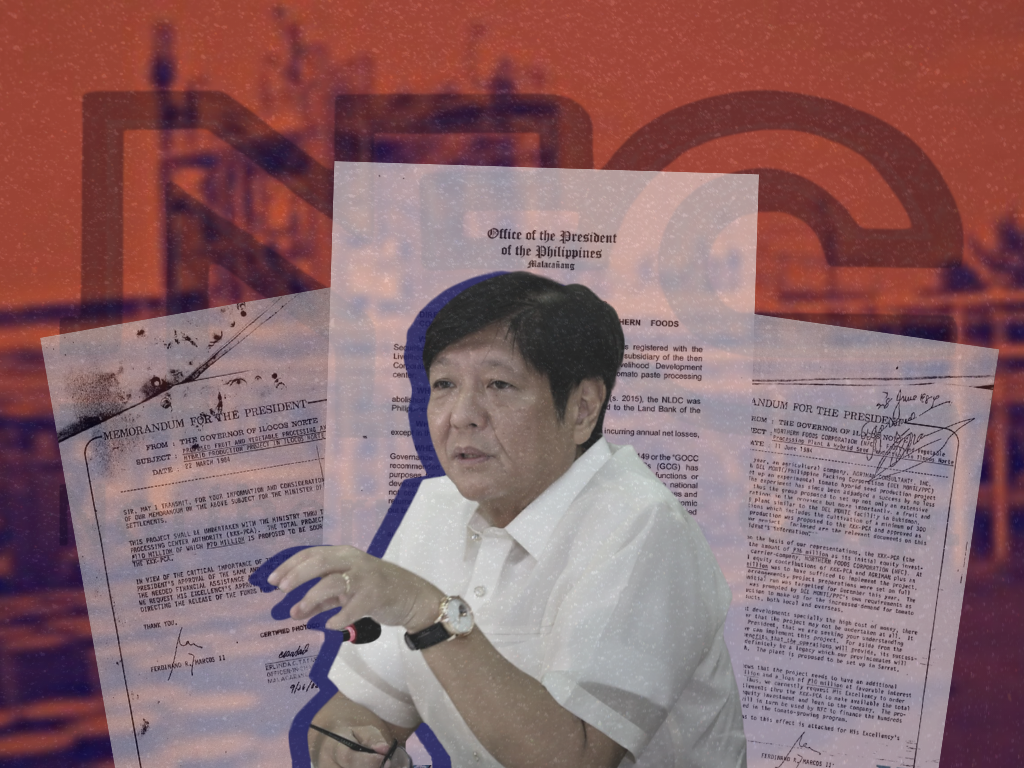VERA Files calls attention to DA’s revival of Marcos Jr.’s failed project in Ilocos Norte

PEOPLE WONDERED why Ferdinand Marcos Jr. decided to take over as Secretary of Agriculture, which he announced on June 20. Most news organizations seemed to have missed one reason revealed by the recently re-elected Governor of Ilocos Norte who is also the President’s nephew.
Cheers to VERA Files for its in-depth report calling attention to the quietly announced revival of President Marcos’ failed project – a tomato processing plant in his home province reportedly costing over PHP 110 million to start in 1984 during Marcos’ first term as Governor of the province.
As President, he announced his self-appointment as concurrent Agriculture Secretary. Not surprisingly, there were no objections to his push for his pet project and securing the necessary funds to re-start his enterprise.
The President’s nephew, Ilocos Norte Governor Matthew Manotoc, announced the move in a July 6 press conference. Other than a report from state-run Philippine News Agency (PNA), media did not pick up the news about the restoration of the tomato enterprise which would cost the government PHP 100 million. VERA Files also pointed out how the PNA’s article neglected to mention president’s ties to the project.
The failed project
Joel F. Ariate Jr.’s July 15 report traced the origins of the revived project to his proposal to establish a “food and vegetable processing and hybrid seed production plant” that would later be called the Northern Foods Corporation (NFC). In a memorandum addressed to his mother then the First Lady, Marcos called the NFC “a prestige project of the Governor and the President (Marcos Sr).”
Documents included in VERA Files’ report showed that the initial proposal called for PHP 110 million in funding. However, Marcos repeatedly asked for additional funds amounting to PHP 130 million, requests which his parents indulged. A mere ten months after it was first proposed by the presidential son, the NFC’s tomato processing plant started operations. A memorandum addressed to the Marcos Sr. claimed that should the NFC be successful, it would be “a legacy which our province mates will long remember and cherish.”
Ariate noted that this success did not materialize. He also reported that the Commssion on Audit (COA) flagged the NFC for issuing a “six-figure cash advance” to its contractor Agriman Consultants. Then Governor Marcos sat on Agriman Consultants’ Board of Directors, a seat he retained until NFC’s closure. The PHP 2.4 million owed by the now-defunct consulting firm to NFC was discovered after the Marcos ouster in 1986 when the NFC came under new management.
The enterprise was ordered shut down by President Duterte in 2021 when he signed Memorandum Order No. 58 abolishing the NFC for “incurring annual net losses, except in the years 1989, 1995, and 2010” and ordering the “liquidation of assets and settlement of liabilities” of the NFC.
President Marcos’ revival of the project and release of new funds reversed Duterte’s order.
This Cheer reminds journalists that in reporting on the President and his family members, they need to connect the dots between past and present, as this report of Vera Files has done. The record shows that while Marcos Jr. managed the NFC, the enterprise also served as his access to funds. This issue should not be sidelined but rather examined closely by journalists reporting on this project in the President’s home province, a jurisdiction still held by his family and relatives.
Vera Files also noted how the PNA report omitted relevant facts. It would be good for independently run news organizations to closely monitor the flow of information from this and other government information agencies. After all, it is not the Marcos family that pays for PNA, but the hard-earned money that Filipinos pay in form of obligatory taxes.
Leave a Reply